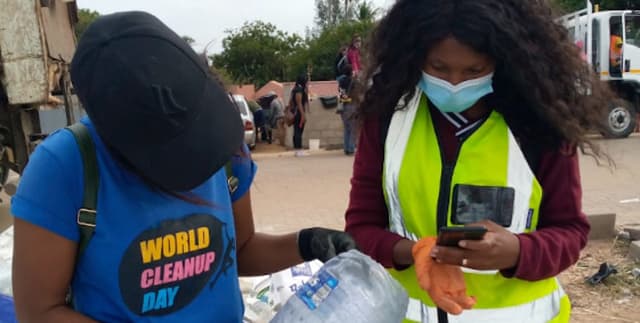Wastebase Plastic Bottle Waste Data
Data Science and Analytics
Tags and Keywords
Trusted By




"No reviews yet"
Free
About
This dataset provides regularly-collected information on single-use plastic bottle waste detected in public spaces, identified down to individual commercial products. It was gathered using the Wastebase digital platform, a crowdsourced data collection tool, from March 2021 through October 2024. Data is collected via a mobile app, timestamped and location stamped, and then verified and linked to brand and product details by Wastebase Data Partners.
Columns
- product_barcode: A numerical identifier for the specific product barcode, used for tracking.
- product_label: The descriptive label of the product, such as "Mineral Water" or "Fizz".
- product_size: The volume of the product, for example, "1.0 L" or "2.0 L".
- brand_name: The name of the brand associated with the product, like "Fanta" or "Fizz".
- manufacturer_country: The two-letter country code of the manufacturer, such as "MZ" for Mozambique or "US" for United States.
- manufacturer_name: The name of the manufacturer, including "Coca-Cola" or "UNKNOWN_ORG" for unidentified manufacturers.
- scan_country: The two-letter country code where the plastic bottle was scanned, for instance, "MZ".
- data_url: A link to specific data records on the Wastebase platform.
- bottle_weight: The measured weight of the bottle in units not specified, with an example range of 17.00 to 110.00.
- bottle_count: The number of bottles recorded in a given scan, with counts ranging from 1.00 to 63.00.
Distribution
The dataset is provided in CSV format and is approximately 11.84 kB in size. It is structured as tabular data with 10 columns. Based on the validity counts observed across various columns, it contains 85 records.
Usage
This dataset is ideal for tracking and analysing plastic pollution trends, identifying the prevalence of specific brands and products in waste streams, and supporting environmental research and policy development related to single-use plastics. It can be used by researchers to study waste composition, by non-governmental organisations to advocate for brand accountability, and by businesses to assess their environmental footprint.
Coverage
The data was collected from March 2021 through October 2024. Geographically, it covers a range of countries including:
- Canada (CA)
- Congo (Democratic Republic of) (CD)
- Cameroon (CM)
- United Kingdom (GB)
- Ghana (GH)
- Kenya (KE)
- Malawi (MW)
- Mozambique (MZ)
- Rwanda (RW)
- Tanzania (TZ)
- Uganda (UG)
- South Africa (ZA)
- Zambia (ZM) Data was collected by Data Partners in sub-Saharan Africa and individual contributors in Africa, Europe, and North America. A note regarding data availability indicates that for products where the manufacturer country is UK and manufacturer name is UNKNOWN_ORG, it signifies that the brand and product were identified but the manufacturer was not; this is more common in the global south due to varying requirements for manufacturer disclosure.
License
Attribution-NonCommercial 4.0 International (CC BY-NC 4.0)
Who Can Use It
This dataset is suitable for a wide range of users, including:
- Environmental researchers: To study plastic waste patterns and their ecological impact.
- Policymakers: To inform legislation and strategies for waste management and pollution control.
- Non-governmental organisations (NGOs): For advocacy campaigns against plastic pollution and to hold brands accountable.
- Students and educators: As a practical resource for environmental studies and data analysis projects.
- Businesses: To understand their product's presence in the waste stream and inform sustainability initiatives.
- Citizen scientists: To contribute to and engage with global environmental monitoring efforts.
Dataset Name Suggestions
- Wastebase Plastic Bottle Waste Data
- Global Single-Use Plastic Pollution Counts
- Crowdsourced Plastic Bottle Tracker
- Environmental Plastic Waste Records
- Wastebase Urban Waste Data
Attributes
Original Data Source: Wastebase Plastic Bottle Waste Data
Loading...
Free
Download Dataset in ZIP Format
Recommended Datasets
Loading recommendations...
